About 21 million people are registered to vote, as reinvigorated opposition aims to end 25 years of socialist rule.
In Caracas Venezuela citizens commenced voting on Sunday in a pivotal election that could potentially dismantle the authoritarian regime of Nicolás Maduro and the long-standing socialist governance that has steered this beleaguered South American nation for over twenty-five years.
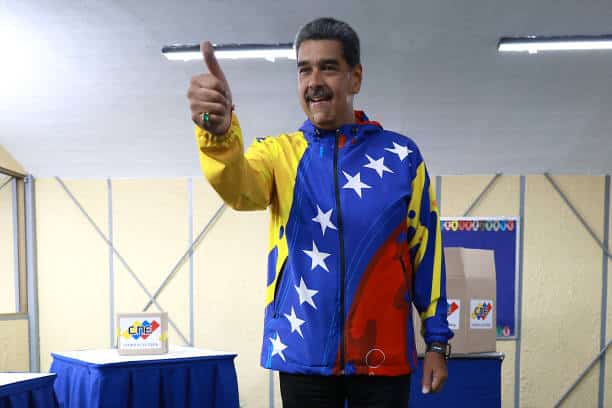
The country’s opposition, historically fragmented and stifled under the autocratic leadership, perceives this election as their most promising opportunity in over a decade to dethrone the strongman, widely blamed for the economic downfall of this oil-abundant country and the resulting mass exodus of millions, with hundreds of thousands seeking refuge in the United States.
Maduro has taken drastic measures to suppress opposition, including barring their selected candidate, detaining campaign workers, and restricting access to state-controlled media. Despite these challenges, the opposition remains optimistic, anticipating a sweeping victory.
However in a nation where the electoral council judiciary, and military apparatus are under Maduro’s influence, the outcome remains precarious. Insider reports suggest that Maduro and his allies are confident in securing a win, and even if faced with electoral defeat, he is unlikely to relinquish power willingly.
Voting stations were set to open at 6 a.m. on Sunday yet at a school in the Chacao district of Caracas, a group of 18 individuals arrived three hours early, enduring a six-hour wait amid delays in opening the polling booths.
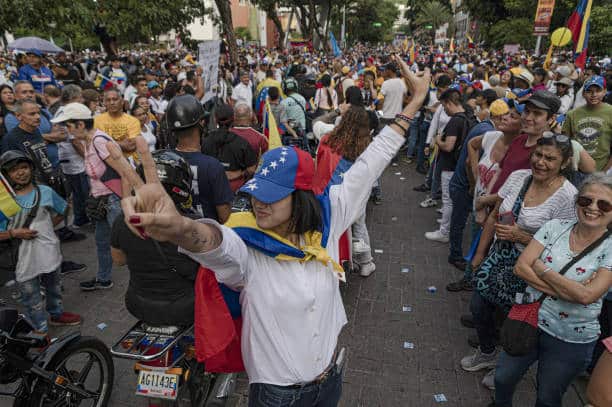
By 9 a.m., the gathering crowd, now numbering in the hundreds, began chanting, “We want to vote!” Esther Pérez Villegas, whose husband was among those in line, stepped forward to assist in organizing the queue. “Anxiety is high, very high, because of all the uncertainty we feel” she noted.
Noemi Tovar, aged 61, had been waiting since 3 a.m. “If I have to wait all day, I’ll wait all day” she declared.
“We’ve stood in lines here for many things — for food, for gasoline,” commented Martha Salas, 62. “This line is for something far more significant — for a vote.”
The opposition is banking on mobilizing a massive voter turnout to secure a decisive victory, one so overwhelming that Maduro would be compelled to acknowledge the results and commence negotiations for his departure. The United States could play a pivotal role, potentially offering legal incentives and easing sanctions to provide Maduro with a non-punitive exit strategy.
A senior Biden administration official, speaking under anonymity, stated that the U.S. is prepared to “consider measures that would facilitate a peaceful transition of power.”
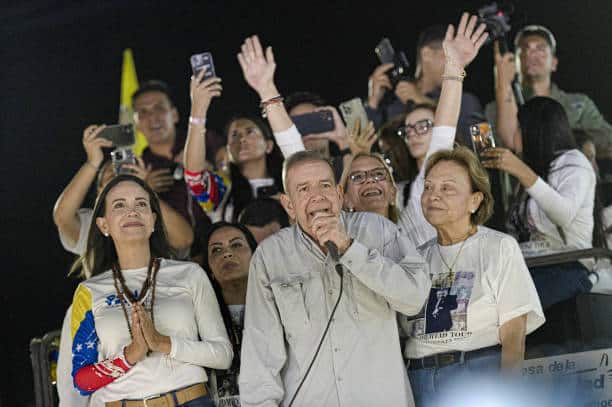
A defeat for Maduro would mark a significant diplomatic triumph for the Biden administration, which had previously negotiated an agreement wherein Maduro promised to hold a competitive election in return for some sanctions relief. With irregular migration becoming a central issue in the U.S. presidential race, a success in Venezuela could enhance Vice President Harris’s standing against former president Donald Trump.
The opposition’s candidate, former diplomat Edmundo González, was relatively unknown to the Venezuelan populace until recent months. Now, polls suggest he could defeat Maduro by a significant margin. González serves as a proxy for longtime Maduro adversary Maria Corina Machado, the “Iron Lady” known for drawing massive crowds to her fervent campaign rallies, who has been barred from running by Maduro’s supreme court.
Machado’s campaign centers on a straightforward message: A vote for the opposition will pave the way for the return of exiled loved ones. “The central theme is family, the idea that this might be our last chance to reunite our families” Machado conveyed to The Washington Post. “This isn’t just an election campaign; it’s a movement for redemption and liberation.”
The lead-up to the election has been anything but fair. European Union observers, who were scheduled to monitor the election, were disinvited, leaving only a few small teams from the Atlanta-based Carter Center, a U.N. panel of experts, and a grassroots group of thousands of ordinary Venezuelans trained to oversee the polling process.
Machado called on supporters last week to vote early, remain near the polling stations, and report any suspicious activities. “We will all become citizen reporters,” she urged.
Davis Salazar, a retired firefighter now residing in Canada, returned to Venezuela to cast his vote. “The people have awakened. It’s been 25 years of theft and destruction,” said Salazar, 65. “If we want change, we must vote. Otherwise, we’ll continue with the same.”
Venezuelans are closely watching the military’s response to any potential electoral manipulation.
Leopoldo López, another opposition leader, urged the military to consider their own future and stability. “Today, with Edmundo, a transition could provide greater stability,” he argued, “rather than following Maduro’s orders to kill, to oppress, to enforce the state.”
Maduro has ominously warned of a “bloodbath” if he loses. “The fate of Venezuela hinges on our victory” he told supporters recently. “To prevent a bloodbath or a fratricidal civil war incited by the fascists, we must secure the largest electoral victory ever.”
Maduro’s defence minister Vladimir Padrino López stated last week that he would uphold the law. He asserted that “the winner will assume his governmental responsibilities, and the loser should step down. That’s all.”
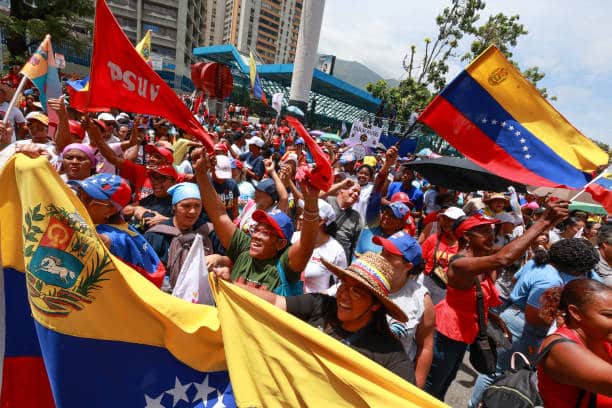
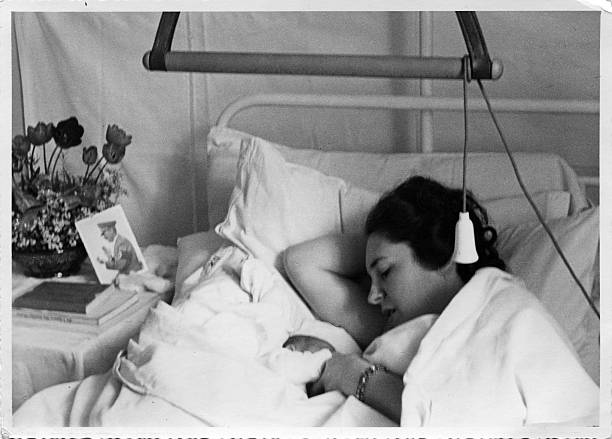
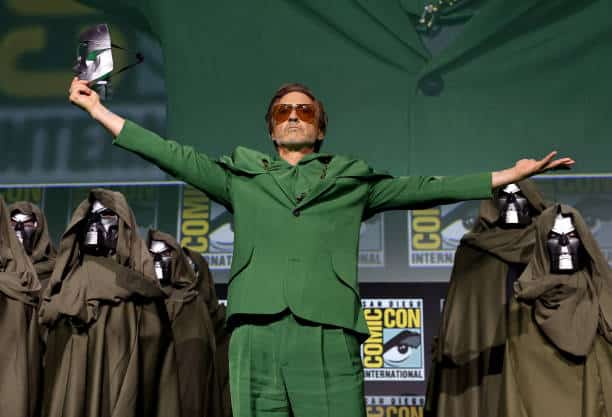
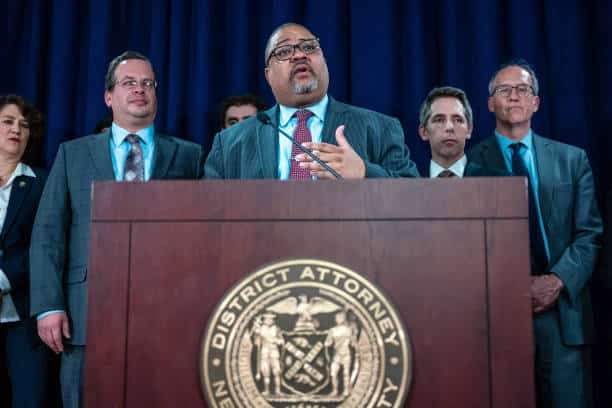
One thought on “Venezuela election live updates: Voters to choose between another term for Maduro or a big change”